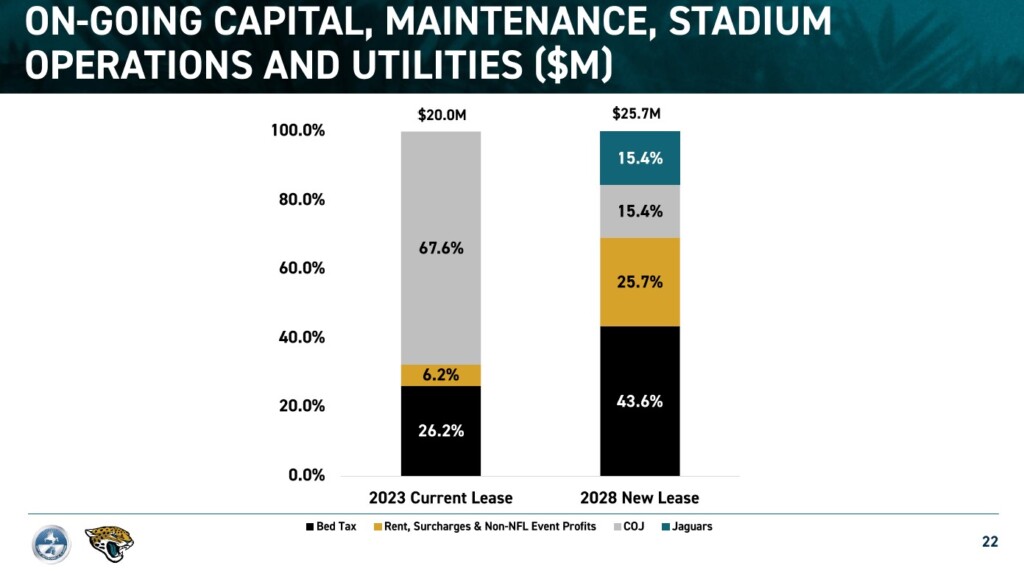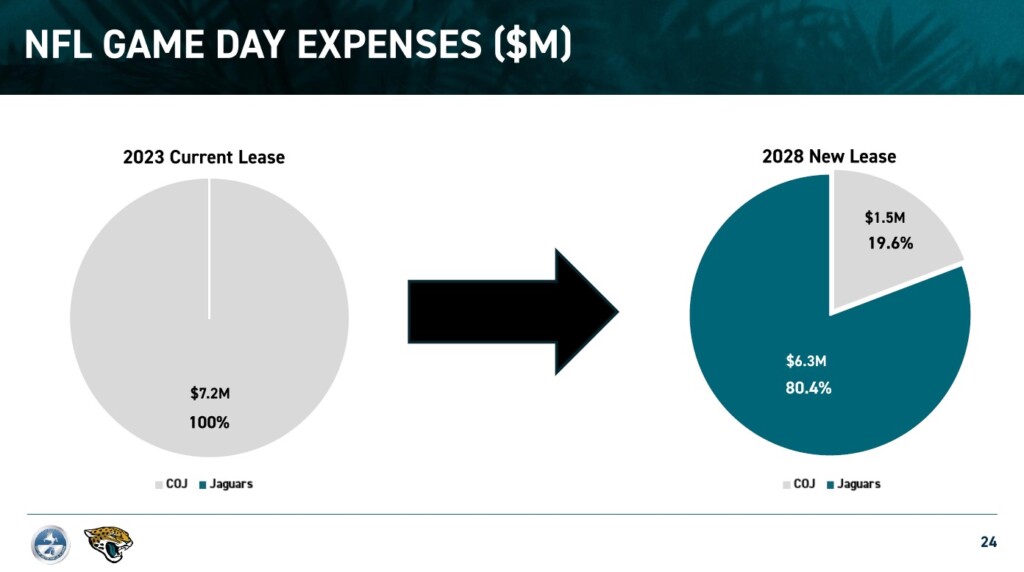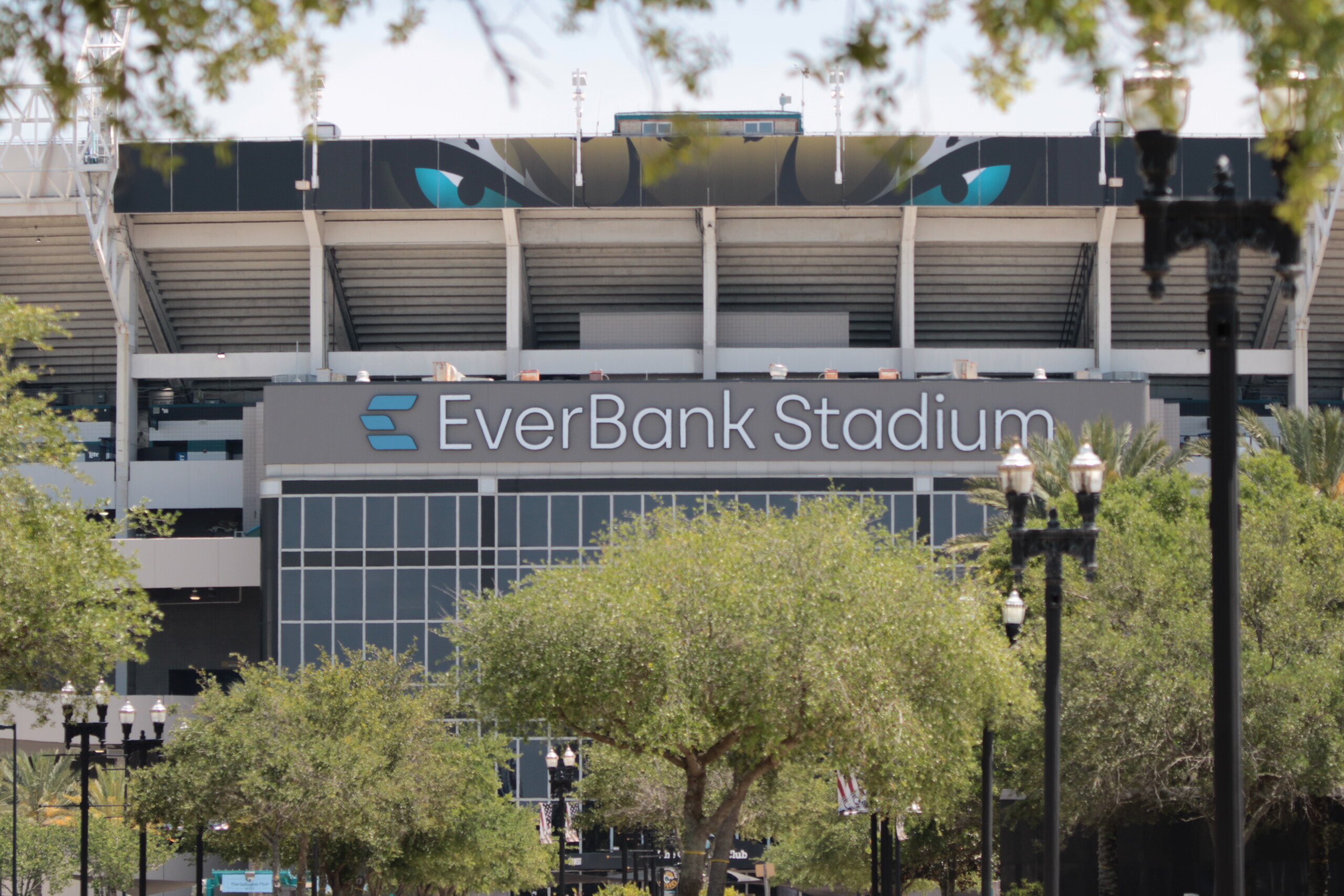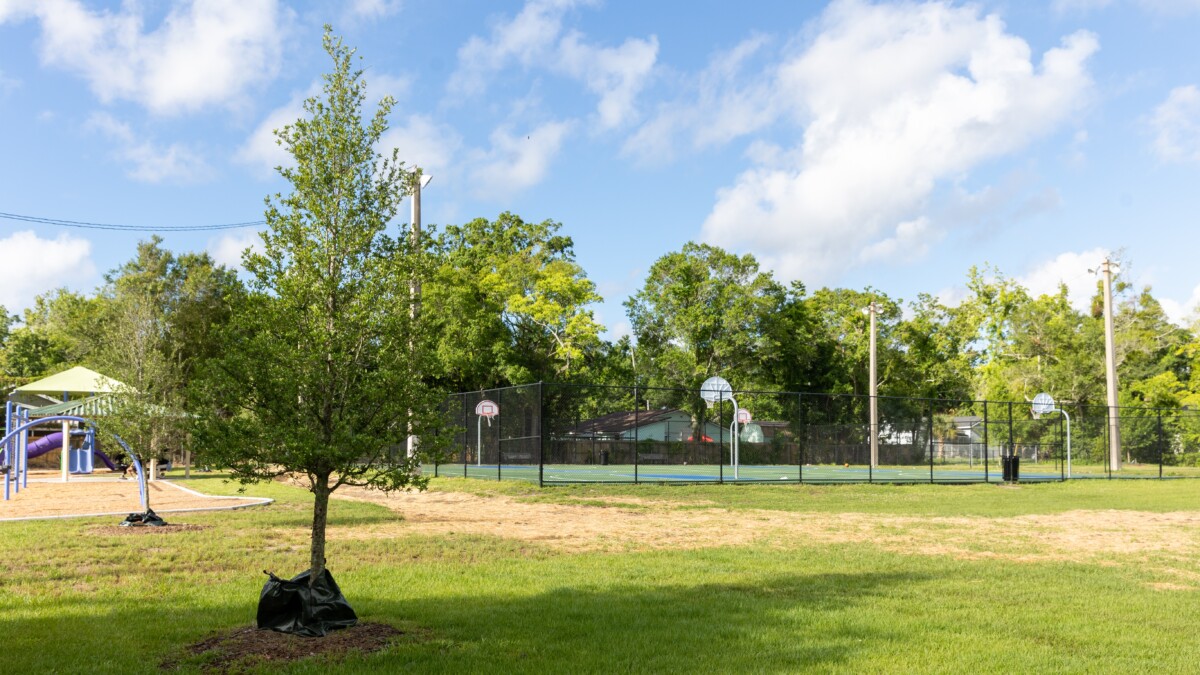Last week, the city unveiled the “framework” of a deal for a new 30-year lease of EverBank Stadium by the Jacksonville Jaguars. In presenting the proposal, Mayor Donna Deegan called the new deal “light-years” ahead of the city’s current Jags lease.
“We came into these negotiations with a current lease that was, frankly, heavily weighted in favor of the Jaguars,” Deegan told City Council last week. “We said from the start this lease had to be very different. It had to be fair to the taxpayers.”
A day later, city negotiator Mike Weinstein echoed the sentiment at Mandarin High School, at the first of several “community huddles.”
“(The Jaguars) had an advantage of a lease that started 30 years ago and has been amended 15 times – and to the point where it is basically in their favor to a great extent,” Weinstein said.
A Jacksonville Today analysis of current cost sharing for day-to-day stadium operations, versus those proposed under the new deal, indeed shows a more even split.
Current deal ‘heavily weighted’ in favor of the Jags
Under the existing lease, the stadium costs the city drastically more money than it brings in. In the four years ending in 2023, the city’s operating expenses for the stadium totaled more than $87 million, while total revenues were just over $20.6 million, for a net “city contribution” of $66.4 million out the door.
Documents released by the city and the Jaguars last week show that under the current deal, the city covers 67.6% of EverBank Stadium’s expenses, with hotel “bed taxes” paying for another 26.2%, and around 6.2% is covered by Jaguars’ “rent, surcharges and non-NFL event profits.”
How are financial responsibilities expected to change?
Under the proposed deal, the city and the Jaguars estimate that bed taxes, event profits, rent paid by the team and fees will increase, and the city and the team will split the remaining costs evenly. How future costs and revenues were estimated was unclear.

“Right now we pay game day expenses,” said Weinstein. “The city of Jacksonville pays over $7 million a year to basically do the game the way it should be done.”
The new deal would have the city would remain responsible for police and fire presence, but the team would share the costs of utilities and game-day expenses, which are currently the city’s sole responsibility. The public safety portion — police officers and fire and rescue crews — amounts to around $2 million.

Weinstein said the city and the Jags expect bed tax revenue to increase with new hotels — such as team owner Shad Khan’s planned Four Seasons across from EverBank Stadium — expected to come online. Presentation documents show the projected hike in bed tax revenue would cover 43.6% of expenses, up from 26.2% today (no timeline was included).
Increased team responsibility
The proposed deal also would put the Jaguars in charge of stadium operations, including developing budgets and capital maintenance plans, which the city would need to approve.
And the Jags would be responsible for attracting major non-NFL events to the facility. Both the city and Jaguars expect an increase in events that will result in increased revenues.
The Jaguars’ increased responsibility for stadium operations mirrors other recent NFL team leases across the country, Weinstein said during the joint presentation to City Council last week, and he said the city pushed for that in its negotiations with the team.
“They will basically take on the responsibility of maintaining and operating the facility, which will prevent 30 years of arguments that we’ve had over the years as to what an NFL stadium is supposed to be,” Weinstein told the council. “We jointly decide on budgets for maintenance. We jointly decide on the budgets for operating and utilities, but they maintain the building. And that’s basically a major change.”
He added that if the Jaguars hire an outside manager operator, like ASM, the city and the Jaguars will jointly decide who that will be.
“So we’re in it together and we manage it together, but they have the responsibility of keeping it up, so we won’t be having arguments throughout the years as to what ultimately needs to be done,” Weinstein said.
The city and the Jags would “share any budget overage up to $5 million; (and) any amount in excess of that is the obligation of the Jaguars,” the documents state.
In addition to the operating-costs piece, the new proposed agreement covers many other considerations — like the even cost split of a $1.25 billion stadium overhaul, the city’s spending $150 million in overdue maintenance before construction begins, and a $300 million “community development” investment in areas outside the stadium, to be split 50-50.

Casmira Harrison is a Jacksonville Today reporter focusing on local government in Duval County.






